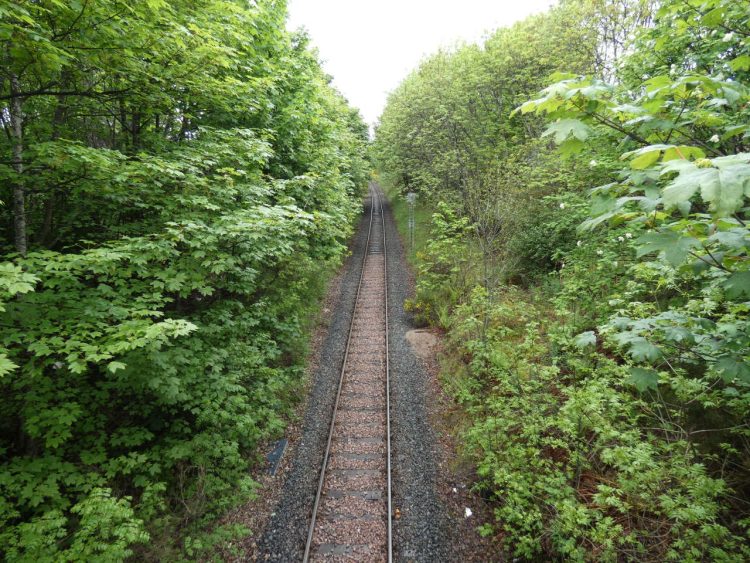A new innovation is set to provide better management of the trees and foliage alongside Britain's railways.
Tiger Technology (Tiger) based in Herefordshire has developed an environmentally friendly arboriculture management solution that combines aerial saws with in-house aviation expertise. To support its development, Tiger is being provided with a £35 million support package by supply trade specialist OCI for management consulting, commercial capacity building, supply chain management and a credit facility.

Thousands of trees are to be found next to the nation's railways, and they provide unique challenges to Network Rail in managing their foliage and infrastructure, including high maintenance costs and limited physical accessibility. Conventional arboriculture comes with considerable environmental requiring many of maintenance vehicles, chainsaw teams as well as large amounts of fuel.
Foliage next to railway lines often means trains have to run slowly due to it encroaching on rail lines, whilst the canopy creates shade that leads to damp conditions. Maintenance of this requires large teams of people, often working for long periods of time, in remote locations.
Tiger combines aerial saws with helicopters to dramatically reduce the risk of injury and the operational cost of managing foliage. Tasks take approximately 18 times less than by other methods, and also saves CO2 emissions and reduces the likelihood of injury.
Tiger developed its aerial saw/helicopter solution after extensive research into challenges posed by foliage on Britain's railways. It recently demonstrated the system's effectiveness to Network Rail and Department of Transport officials, in Worcestershire, with support from RSS Infrastructure and Severn Valley Railway.
A positive environmental impact is expected through:
- reduced carbon footprints by completing tasks quicker:
- preserving natural habitats by minimising disturbance to ecosystems;
- through more precise cutting, and a reduction in unnecessary tree damage, trees and vegetation can grow in a managed environment;
- supporting current practices for sustainable vegetation management.
Tiger is led by internationally esteemed aviation specialist Capt Alan Ramsden, who said “There are around 20,000 miles of railway in the UK with around eight per cent threatened by overgrown foliage. Managing this foliage is enormously challenging, but our solution can carry out tasks in five days which would normally take 90 days.”
Oliver Chapman, CEO of OCI, said “We are excited to support the ingenuity of Tiger Technology. I believe the company will have a significant impact on the management of our nation's infrastructure. Expect to see improved health and safety outcomes for our arboriculture service workers and reduced maintenance costs for our rail service providers.”
“It is my personal ambition to give as much back to the world as I can. I aim to support charitable initiatives close to home and, through OCI's philanthropic efforts, champion ventures that offer a sustainable benefit to global economies.”
“The goal of relieving supply chain constraints aligns with any corporate social responsibility strategy, no matter how big or small the enterprise,” adds Chapman. “I am delighted to work with Tiger Technology and eliminate the roadblocks to their success.”
If NWR kept on top of the line side vegetation after a blitz by contractors with flails like the farming community do they wouldn’t have this issue, its not a new problem its always been their its through their own neglect that it gets out of hand. But it’s great to see more money pouring out of the industry into the hands of private contractors.